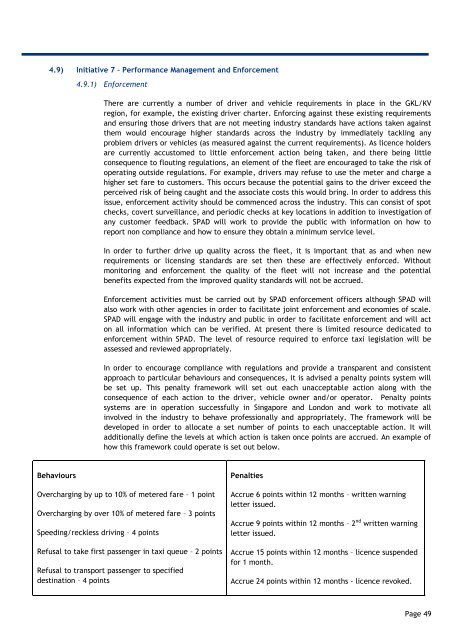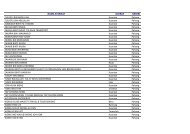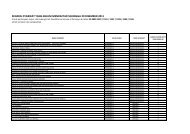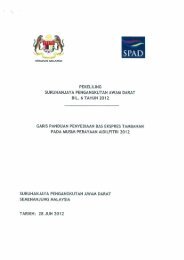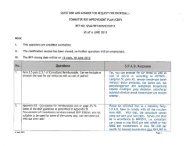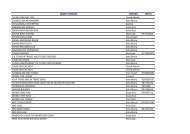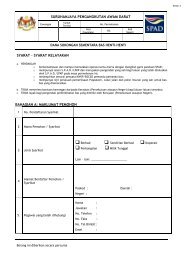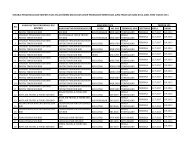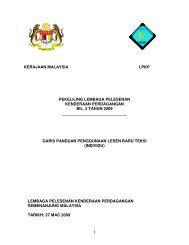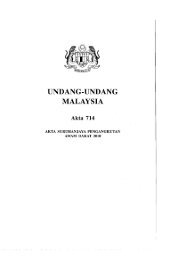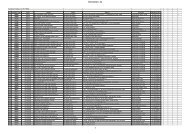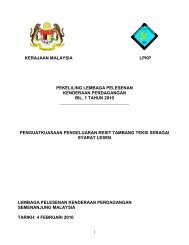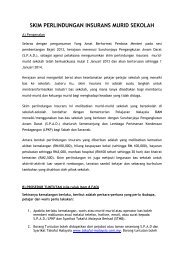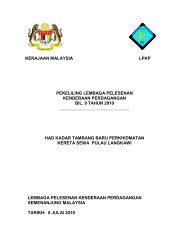4. Developing the Taxi Transformation Plan - SPAD
4. Developing the Taxi Transformation Plan - SPAD
4. Developing the Taxi Transformation Plan - SPAD
You also want an ePaper? Increase the reach of your titles
YUMPU automatically turns print PDFs into web optimized ePapers that Google loves.
<strong>4.</strong>9) Initiative 7 – Performance Management and Enforcement<br />
<strong>4.</strong>9.1) Enforcement<br />
There are currently a number of driver and vehicle requirements in place in <strong>the</strong> GKL/KV<br />
region, for example, <strong>the</strong> existing driver charter. Enforcing against <strong>the</strong>se existing requirements<br />
and ensuring those drivers that are not meeting industry standards have actions taken against<br />
<strong>the</strong>m would encourage higher standards across <strong>the</strong> industry by immediately tackling any<br />
problem drivers or vehicles (as measured against <strong>the</strong> current requirements). As licence holders<br />
are currently accustomed to little enforcement action being taken, and <strong>the</strong>re being little<br />
consequence to flouting regulations, an element of <strong>the</strong> fleet are encouraged to take <strong>the</strong> risk of<br />
operating outside regulations. For example, drivers may refuse to use <strong>the</strong> meter and charge a<br />
higher set fare to customers. This occurs because <strong>the</strong> potential gains to <strong>the</strong> driver exceed <strong>the</strong><br />
perceived risk of being caught and <strong>the</strong> associate costs this would bring. In order to address this<br />
issue, enforcement activity should be commenced across <strong>the</strong> industry. This can consist of spot<br />
checks, covert surveillance, and periodic checks at key locations in addition to investigation of<br />
any customer feedback. <strong>SPAD</strong> will work to provide <strong>the</strong> public with information on how to<br />
report non compliance and how to ensure <strong>the</strong>y obtain a minimum service level.<br />
In order to fur<strong>the</strong>r drive up quality across <strong>the</strong> fleet, it is important that as and when new<br />
requirements or licensing standards are set <strong>the</strong>n <strong>the</strong>se are effectively enforced. Without<br />
monitoring and enforcement <strong>the</strong> quality of <strong>the</strong> fleet will not increase and <strong>the</strong> potential<br />
benefits expected from <strong>the</strong> improved quality standards will not be accrued.<br />
Enforcement activities must be carried out by <strong>SPAD</strong> enforcement officers although <strong>SPAD</strong> will<br />
also work with o<strong>the</strong>r agencies in order to facilitate joint enforcement and economies of scale.<br />
<strong>SPAD</strong> will engage with <strong>the</strong> industry and public in order to facilitate enforcement and will act<br />
on all information which can be verified. At present <strong>the</strong>re is limited resource dedicated to<br />
enforcement within <strong>SPAD</strong>. The level of resource required to enforce taxi legislation will be<br />
assessed and reviewed appropriately.<br />
In order to encourage compliance with regulations and provide a transparent and consistent<br />
approach to particular behaviours and consequences, it is advised a penalty points system will<br />
be set up. This penalty framework will set out each unacceptable action along with <strong>the</strong><br />
consequence of each action to <strong>the</strong> driver, vehicle owner and/or operator. Penalty points<br />
systems are in operation successfully in Singapore and London and work to motivate all<br />
involved in <strong>the</strong> industry to behave professionally and appropriately. The framework will be<br />
developed in order to allocate a set number of points to each unacceptable action. It will<br />
additionally define <strong>the</strong> levels at which action is taken once points are accrued. An example of<br />
how this framework could operate is set out below.<br />
Behaviours<br />
Overcharging by up to 10% of metered fare – 1 point<br />
Overcharging by over 10% of metered fare – 3 points<br />
Speeding/reckless driving – 4 points<br />
Refusal to take first passenger in taxi queue – 2 points<br />
Refusal to transport passenger to specified<br />
destination – 4 points<br />
Penalties<br />
Accrue 6 points within 12 months – written warning<br />
letter issued.<br />
Accrue 9 points within 12 months – 2 nd written warning<br />
letter issued.<br />
Accrue 15 points within 12 months – licence suspended<br />
for 1 month.<br />
Accrue 24 points within 12 months - licence revoked.<br />
Page 49


